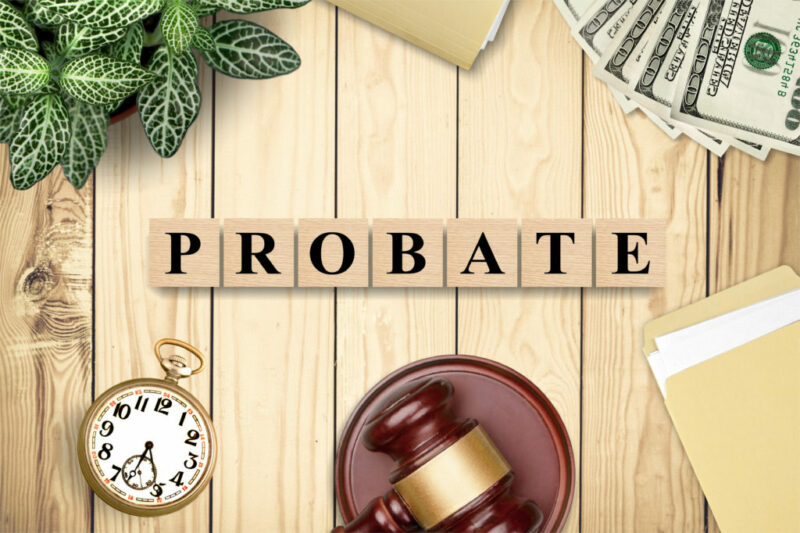Estate planning considers not only the allocation of an individual’s assets to designated beneficiaries after death, but a variety of other eventualities. Disability insurance is a vital part of estate planning and provides valuable protection if the unthinkable happens and you become disabled and can no longer work to earn a living or care for yourself independently. The experienced San Francisco estate planning attorneys at Von Rock Law can help individuals and families learn more about disability insurance and how to incorporate the right coverage in their estate plans. Contact our law firm today at (866) 720-0195 for a personalized consultation.
What Is Disability Insurance?
The National Cancer Institute defines disability insurance as an insurance policy that provides benefits to the insured in case they become disabled and cannot work. The plan provides income for the policyholder in the event that they can no longer work and earn income due to a disability.
Many plans also have benefits for partial disability as well as total disability, acknowledging the possibility that if an individual is still capable of working part-time, or in another career field than the one they had previously pursued, they may earn significantly less from that work less than they were able to do prior to becoming disabled. The partial disability benefit covers the difference between what an individual who acquires a disability as an adult was earning prior to that circumstance and what the same person is capable of earning afterward.
Social Security Disability Insurance
Some people may be eligible for disability insurance through the United States Social Security Administration, but the application process is complex, with no guarantee that you will be approved nor that the stipend will be enough to meet your needs. The Social Security Administration establishes stringent guidelines for Social Security Disability Insurance (SSDI), and applicants must prove that their disability is so severe that it prohibits them from working at all.
Private Disability Insurance
Some people of working age choose to purchase a disability insurance policy through a private insurer to achieve greater peace of mind that they will be able to collect the benefits should the need arise. By contrast to the proof of total disability required by the Social Security Administration, many plans offered by private insurers only require the policyholder to prove that they cannot continue in the same line of work they were in prior to becoming disabled.
The Main Types of Disability Insurance
The San Francisco, CA, estate planning attorneys at Von Rock Law can help you evaluate different kinds of disability insurance plans to see which one best meets your needs. Disability insurance policies generally fall into one of two categories:
- Short-term disability, in which the policy replaces approximately 60-70% of the insured’s base salary for a stipulated period of time, usually several months to a year
- Long-term disability, which replaces 40-60% of the insured’s base salary for at least one year, usually more, with a term that ends at retirement age or when the insured is no longer disabled
Both types of policies may have stipulations that the insured only receive benefits if they cannot work in their current occupation, or if the insured cannot in any job for which they are qualified.
What Role Does Disability Insurance Play in Individual Estate Planning?
Disability insurance policies typically end at retirement age, but this does not mean disability insurance will not play a valuable role in estate planning. The years a healthy individual might spend accumulating assets, including valuable possessions, retirement accounts, and other investments, are generally expected to prepare savings and income-dependent retirement accounts on which they and their family can rely once they leave the workforce. Reducing the number of years an individual can work, or reducing their earning capacity during the decades when most people hope to earn the money they will live on later in life, will have a significant impact on that person’s long-term circumstances and those of their family, as they are likely to miss many traditional retirement saving milestones.
On the other hand, when a person of working age has disability insurance to cover their needs while they recover from illness or injury, or until they are able to secure gainful employment earning an income comparable to what they were making before becoming disabled, they are better able to continue to save for retirement or to make investments to benefit their family and heirs. Disability insurance also reduces the chances that an individual will have to use savings or retirement investments to pay for their immediate needs while they are unable to work.
How Can Disability Insurance Be Used in Business Estate Planning?
Disability insurance is not exclusively for the benefit of individuals working for an employer. In many cases this type of insurance can also benefit sole proprietors and small business owners. Estate planning that incorporates disability insurance may help business owners to protect their assets. An estate planning attorney may also be able to help entrepreneurs create provisions to keep their companies operating if they become disabled or incapacitated.
Disability insurance can play an important role in daily business operations, such as:
- Triggering a buy-sell agreement
- Structuring the terms of business succession planning
Forming one of the benefits offered in employment contracts
Insurance helps protect your business if you become disabled and can ensure that your business will continue to run smoothly if a key employee of your organization becomes temporarily or permanently disabled.
Who Benefits Most From Disability Insurance-Focused Estate Planning?
Because disability insurance policy terms end at retirement age, the people who benefit most from purchasing disability insurance are those who are still employed; it may be a good option for anyone who is currently employed and plans to continue working for pay over the next several years. Disability insurance can prove invaluable whether you become disabled at 20 or 50; the benefits you receive from the policy can help pay bills while you recover or learn to adapt to your changed abilities, as well as providing a source of income while you learn new vocational skills or further your education to develop qualifications for a different career.
What Are the Five Components of Estate Planning?
Estate plans are tailored to the individual, their financial and familial situation, their age, and their goals. However, most estate plans consist of the same five elements:
- Wills and trusts, which deal with dispersing and protecting your assets, and allocating them to your beneficiaries
- Durable Financial Power of Attorney (DPOA), which designates an individual you trust to make financial decisions on your behalf should you become incapacitated
- Medical Power of Attorney, which designates an individual to make health care decisions on your behalf
- A living will, a healthcare directive that states your wishes for end-of-life care like a do-not-resuscitate order, your desire to remain or go off of life support, and pain management treatment
- Specific, individual legal protections for certain assets, like a beneficiary designation or a letter of instruction
Our legal team can assist with all of these, including evaluating disability insurance policies so you have peace of mind that your needs will be covered if a disability prevents you from working.
Do You Need Help Adding Disability Insurance to Your Estate Plan?
If you have not considered the need for disability insurance before, it may be time to revisit your long-term estate planning needs. If you are the primary wage earner for your family, or you are concerned that Social Security Disability Insurance may not be enough to cover your needs in the event that you become disabled due to serious injury or disease, call (866) 720-0195 to schedule a consultation with one of the experienced San Francisco estate planning attorneys at Von Rock Law.




